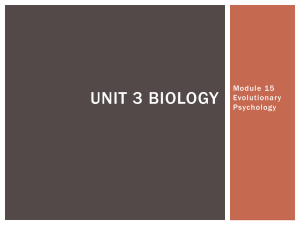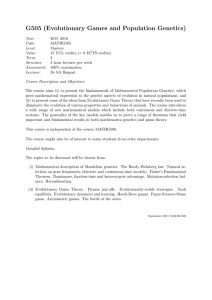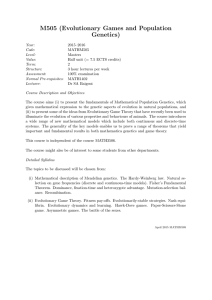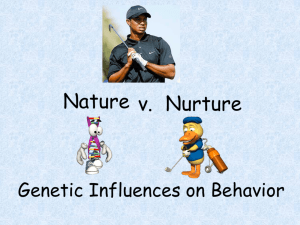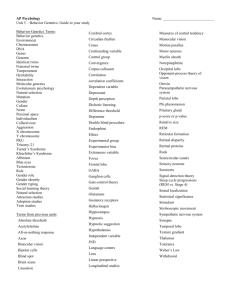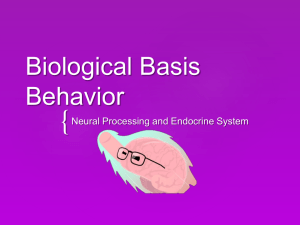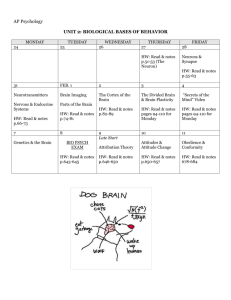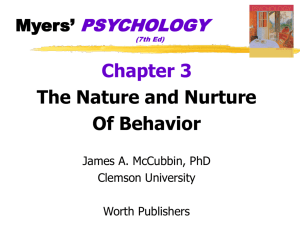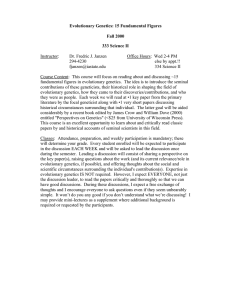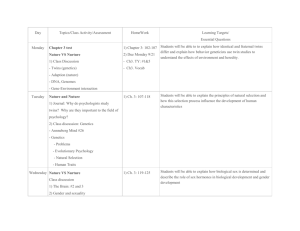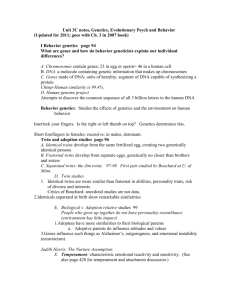STUDY GUIDE: UNIT 3 – BIOLOGICAL BASES OF BEHAVIOR AP
advertisement
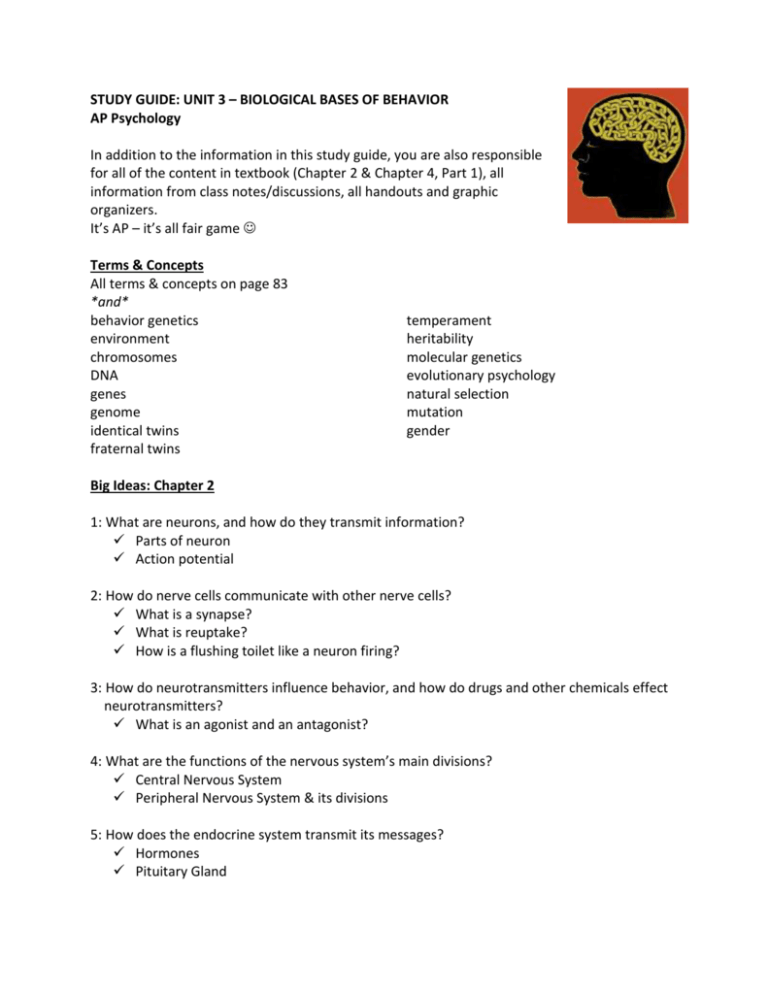
STUDY GUIDE: UNIT 3 – BIOLOGICAL BASES OF BEHAVIOR AP Psychology In addition to the information in this study guide, you are also responsible for all of the content in textbook (Chapter 2 & Chapter 4, Part 1), all information from class notes/discussions, all handouts and graphic organizers. It’s AP – it’s all fair game Terms & Concepts All terms & concepts on page 83 *and* behavior genetics environment chromosomes DNA genes genome identical twins fraternal twins temperament heritability molecular genetics evolutionary psychology natural selection mutation gender Big Ideas: Chapter 2 1: What are neurons, and how do they transmit information? Parts of neuron Action potential 2: How do nerve cells communicate with other nerve cells? What is a synapse? What is reuptake? How is a flushing toilet like a neuron firing? 3: How do neurotransmitters influence behavior, and how do drugs and other chemicals effect neurotransmitters? What is an agonist and an antagonist? 4: What are the functions of the nervous system’s main divisions? Central Nervous System Peripheral Nervous System & its divisions 5: How does the endocrine system transmit its messages? Hormones Pituitary Gland 6: How do neuroscientists study the brain’s connections to behavior and mind? EEG, PET, MRI 7: What are the functions of important lower-level brain structures? Brainstem & its parts Cerebellum Limbic System 8: What are the functions served by the various cerebral cortex regions? Brain parts & regions Phineas Gage 9: To what extent can a damaged brain reorganize itself? 10: What do split brains reveal about functions of our two brain hemispheres? 11: How does handedness relate to brain organization? Big Ideas: Chapter 4 1: What are genes and how do behavior genetics explain our individual differences? Behavior Genetics DNA, genes, genomes Twin & adoption studies 2: What is hereditability and how does it relate to individuals and groups? Nature & nurture 3: What is the promise of molecular genetics research? 4: How do evolutionary psychologists use natural selection to explain behavior tendencies? Evolutionary psychology Artificial selection 5: How might an evolutionary psychologist explain gender differences in sexuality and mating preferences? Natural selection & mating preferences 6: What are the key criticisms of evolutionary psychology?
